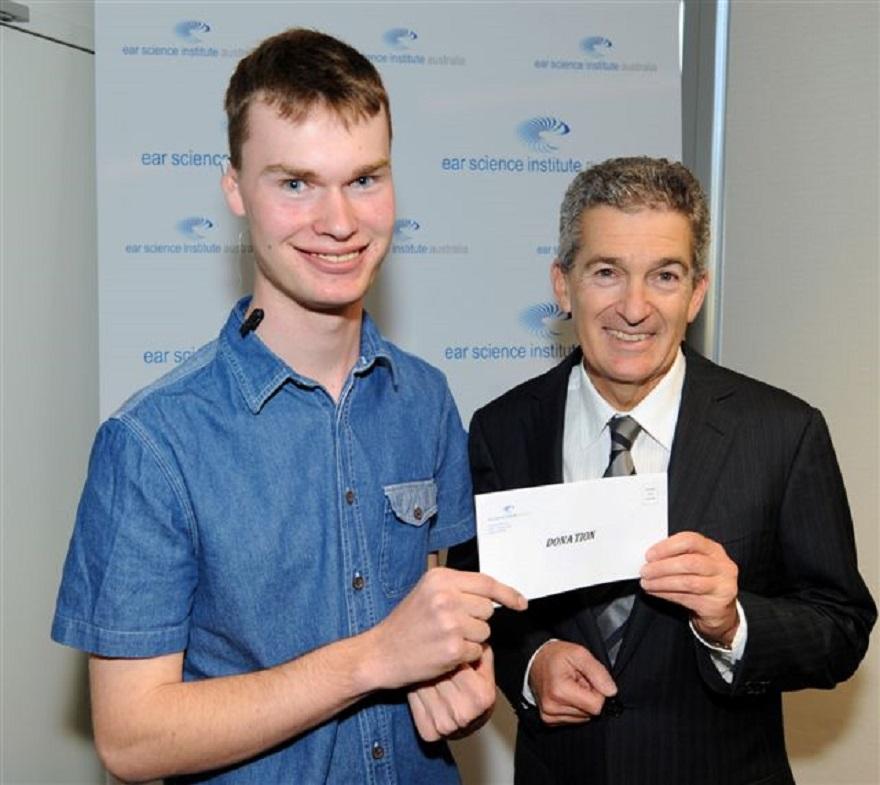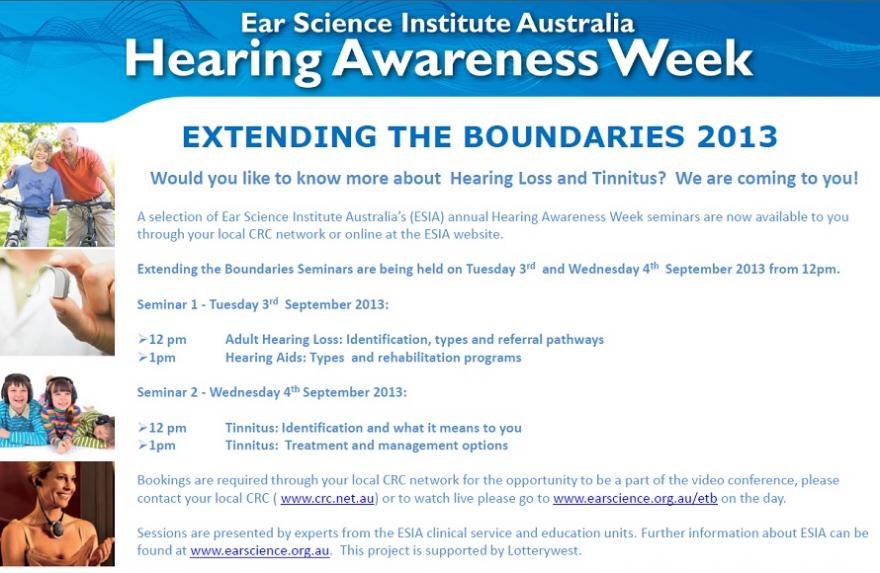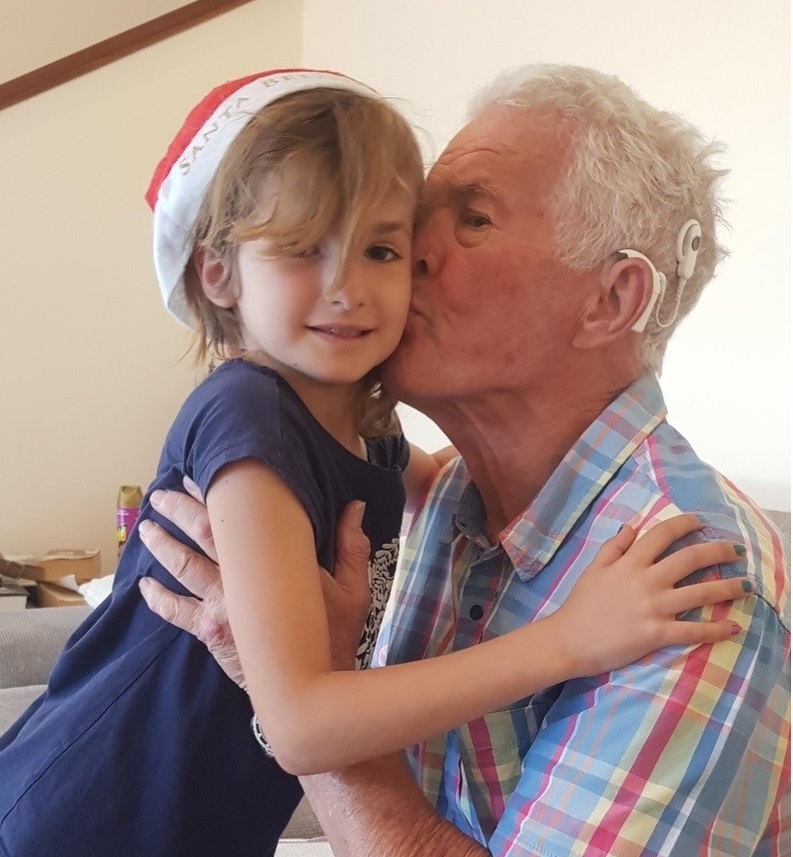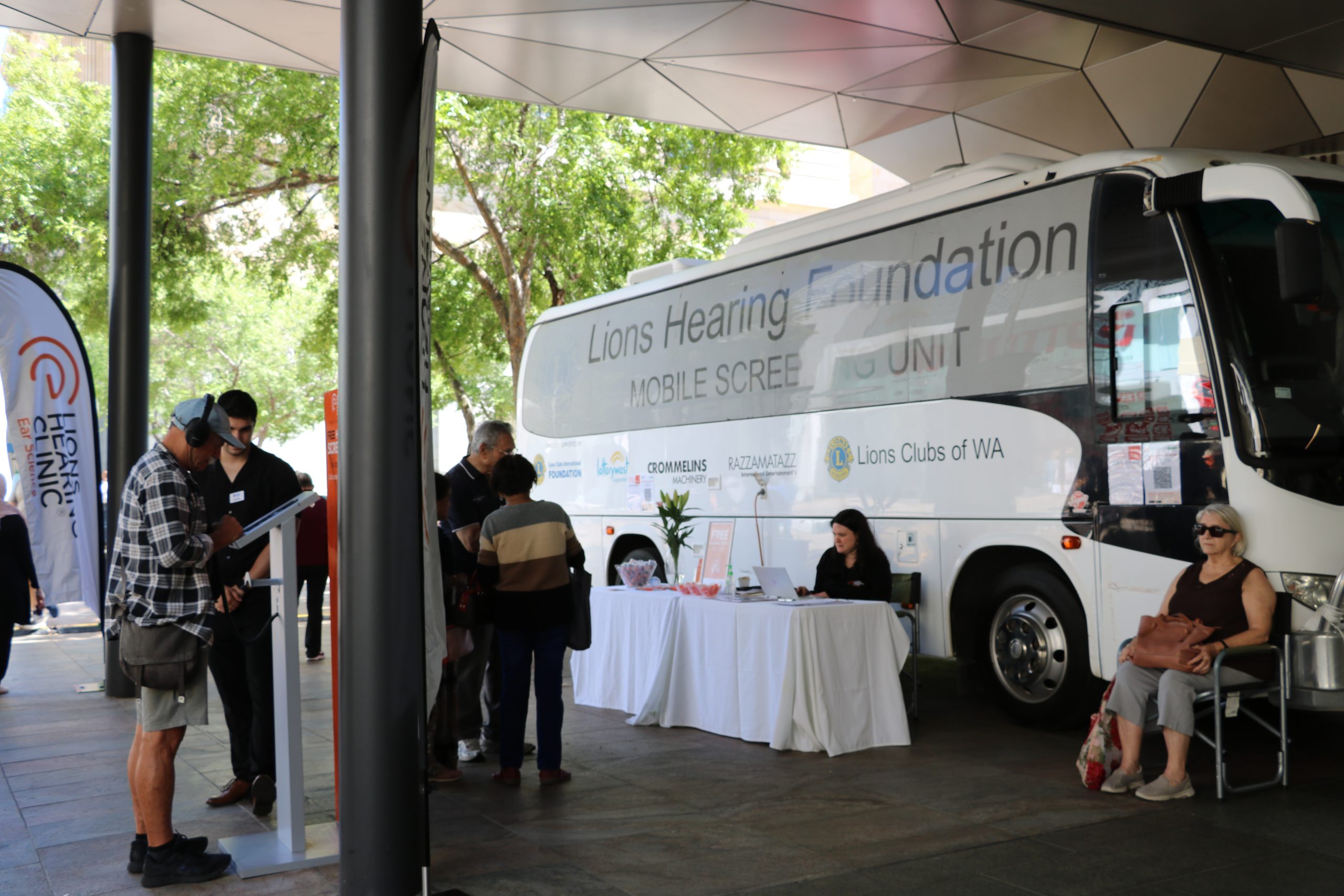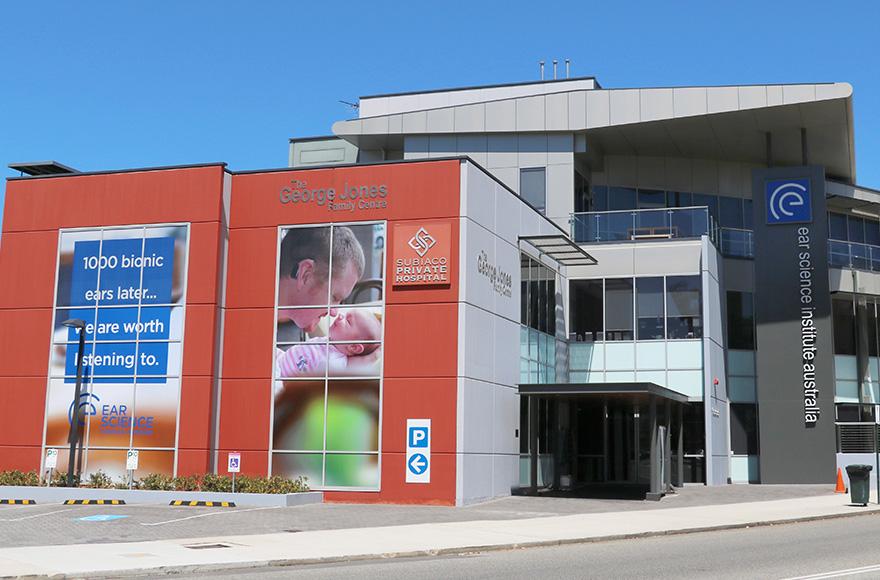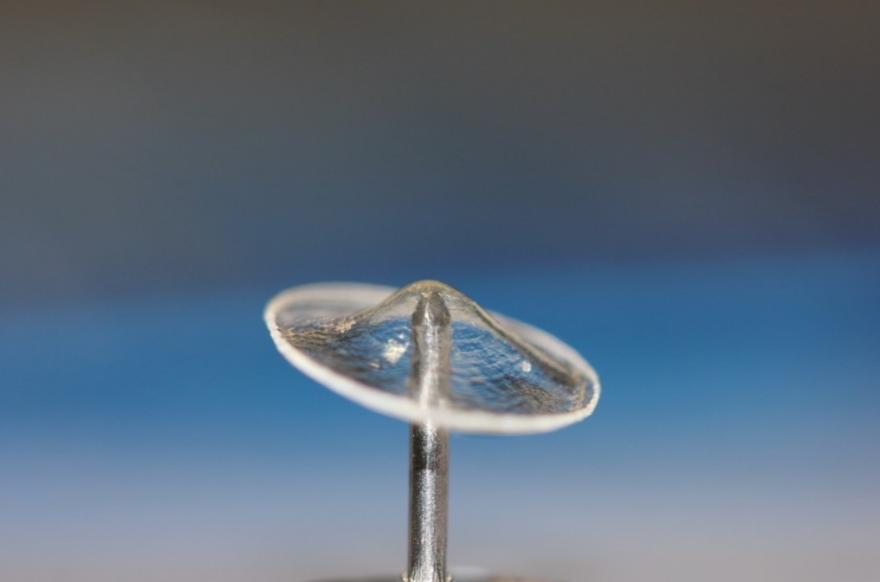WA adolescent receives world-first magnetic cochlear implant device
31/10/2013
A 17 year old Perth school-boy has become the world’s first adolescent recipient of a new magnetically attached hearing implant at the Ear Science Institute Australia.
Winthrop Professor and Ear Science Director, Marcus Atlas performed the surgery implanting a Cochlear™ Baha® Attract System on Alexander Brewer in early August with the aim of restoring his hearing that has been impaired since birth. The device was ‘switched on’ in early September and he has since rapidly progressed through the follow-up program.
The new small titanium implant doesn’t penetrate through the skin but instead uses magnetic retention to connect the external and internal components. It use the body’s natural ability to send sound via bone directly to the inner ear, the cochlea; bypassing hearing roadblocks.
Alex Brewer, who recently underwent WACE exams, said it was a bit of a shock to hear everyday noises like traffic and an air-conditioner but is getting used to the sound of the world around him.
“I’ve been looking forward most to renting The Blues Brothers movie (that doesn’t have sub-titles), listening to music, feeling more confident to socialise with peers and shedding some of the social isolation that comes with hearing problems,” Alex said.
A student at Christ Church Grammar School, Alex has received great support from his peers – many of whom recently participated in a fundraising drive where they raised more than $1000 for the Ear Science.
Ear Science is participating in the Asia Pacific controlled market release (CMR) of the new Cochlear Baha Attract System which is expected to become widely available in the first half of 2014.
The magnet of the Baha Attract System adapts to the recipient’s skull and evenly distributes pressure. The small external sound processor which is connected to the implant, sits just behind the ear. It provides a wide range of programs to help the recipient hear clearly in different surroundings.
“The last two decades have witnessed outstanding advances in implant technology that has enabled hearing restoration in people previously unable to be treated,” Professor Atlas said.
“Ear Science have performed more than 300 implants, most recently commencing a paediatric program and are delighted to have offered Alexander a world first. The Baha Attract System is a welcome addition to our armoury of implantable options and will assist to ensure the best hearing outcome for a broader number of patients.
“This implant marks another step forward in Ear Science’s ongoing and considered search for better methods and outcomes for all people impacted by hearing disorders.”
Ear Science Institute Australia is a world renowned centre of excellence dedicated to enhancing the lives of people with ear, balance and associated hearing disorders. Globally, the organisation is unique in its ability to provide independent, evidence-based hearing solutions with best-in-class capabilities in research, clinical and community services and, education and training.
Ear Science’s research developments included the unique silk eardrum that holds the promise of less intervention and improved results for people with perforation related hearing loss.
Ear Science achieves world first – 2013
